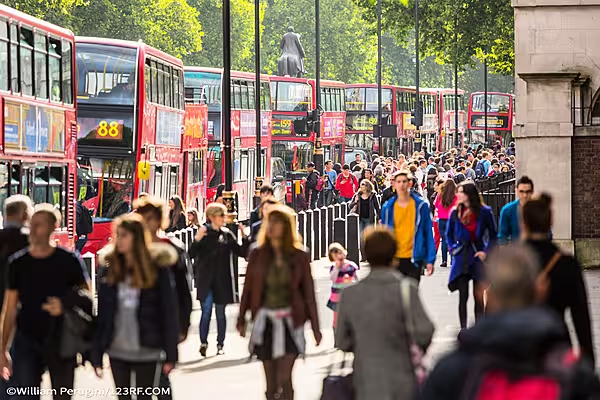British retail sales unexpectedly rose in May, boosted by an extra bank holiday to mark the coronation of King Charles but also suggesting most consumers were coping with high inflation's squeeze on their spending power.
A day after the Bank of England escalated its battle against inflation by raising interest rates to their highest since 2008, official data showed retail sales volumes rose by a monthly 0.3%, defying a Reuters poll forecast for a fall of 0.2%. Last month's increase followed a rise of 0.5% in April.
Sterling edged up against the US dollar and the euro after the data was published by the Office for National Statistics.
The surge in Britain's inflation rate has hit household spending power.
The pace of price growth held at 8.7% in May according to data published earlier this week, contrary to forecasts for a slowdown.
Weathering The Cost-Of-Living Storm
But Friday's retail sales figures showed that, at least for now, British consumers were weathering the cost-of-living storm.
"The figures were far better than we had expected," Ruth Gregory, deputy chief UK economist at Capital Economics, said.
"But our view is still that the growing drag on activity from higher interest rates will eventually tip the economy into recession, generating a 0.5% peak to trough fall in real consumer spending."
Samuel Tombs with consultancy Pantheon Macroeconomics said a consumer-led downturn would probably be avoided as falls in expensive energy bills more than offset the hit to the overall economy from higher borrowing costs for mortgage-holders.
A separate survey published on Friday showed British consumer sentiment rose in June for the fifth month in a row to its highest level since January 2022 as households turned more optimistic about their finances and the economy.
"Retail sales grew a little in May, with online shops doing particularly well selling outdoor goods and summer clothes, as the sun began to shine," ONS senior statistician Heather Bovill said.
"May also saw a return to growth for fuel sales after a dip in April," she said, adding the good weather boosted sales at garden centres and DIY stores as well as clothing stores.
Supermarket Prices Continue To Rise
However, food sales fell by 0.5% from April as supermarket prices continued to rise and many people ordered takeaways and drank out more over the two of May's three bank holidays that fell within the ONS's reporting period.
The statistics agency said the one-off holiday to celebrate the king's coronation was not factored into its seasonal adjustments, meaning it helped to boost the sales volumes reading.
Retail sales volumes in May were 2.1% lower than a year earlier. The Reuters poll of economists had pointed to a fall of 2.6% in sales volumes on an annual basis.
The extent of inflation's toll on consumers was laid bare in the ONS figures which showed that spending in value terms in May was 17% higher than in February 2020, shortly before the coronavirus pandemic hit Britain, but volumes were down 0.8%.
Read More: Why Is Inflation So High In The UK?
News by Reuters, edited by Donna Ahern, Checkout. For more retail news, click here. Click subscribe to sign up for the Checkout print edition.





